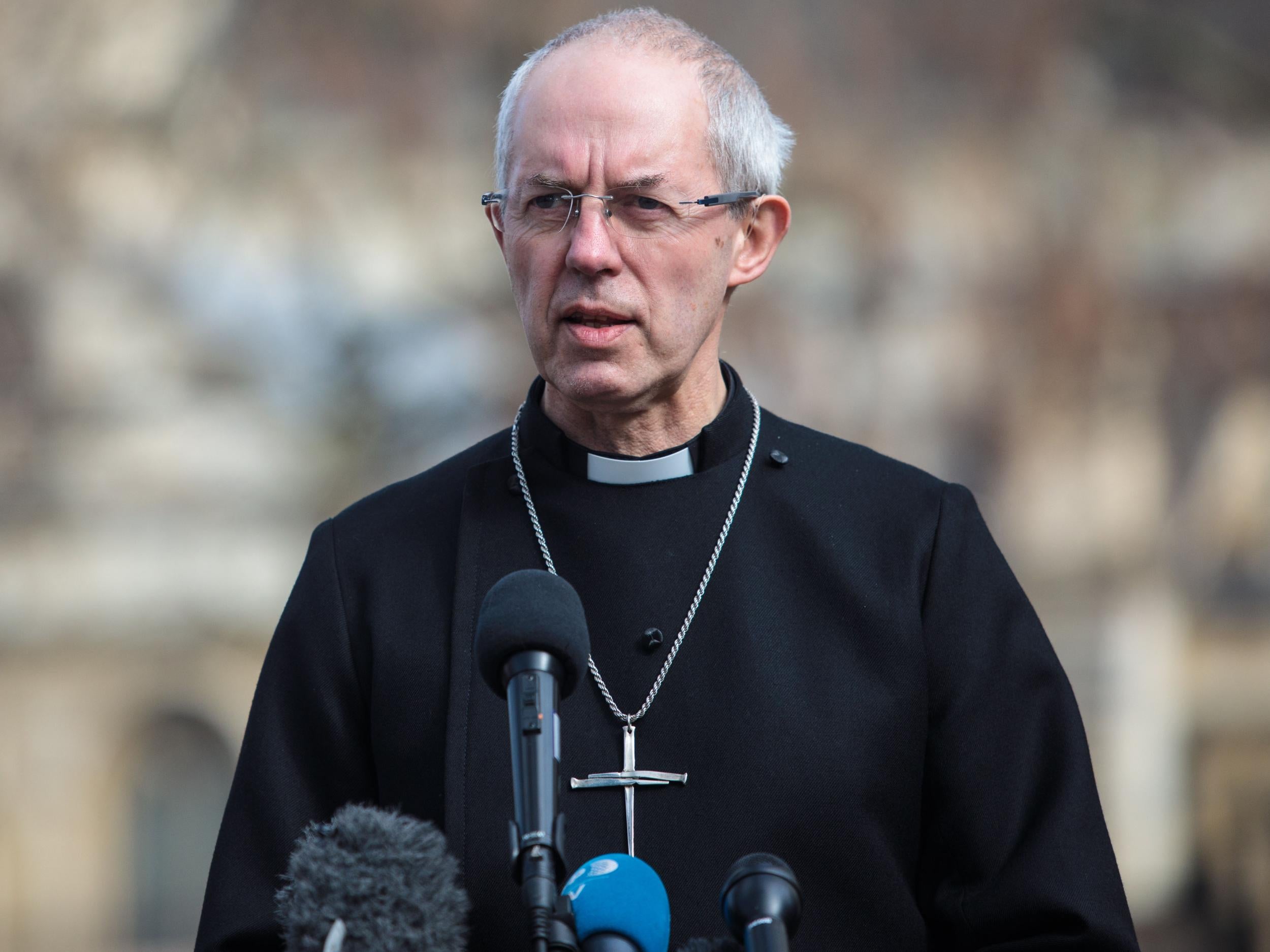Church of England votes to withdraw funds from companies that contribute to climate change
'Today's vote by the Church of England Synod shows the bell is tolling for the fossil fuel era'

Your support helps us to tell the story
From reproductive rights to climate change to Big Tech, The Independent is on the ground when the story is developing. Whether it's investigating the financials of Elon Musk's pro-Trump PAC or producing our latest documentary, 'The A Word', which shines a light on the American women fighting for reproductive rights, we know how important it is to parse out the facts from the messaging.
At such a critical moment in US history, we need reporters on the ground. Your donation allows us to keep sending journalists to speak to both sides of the story.
The Independent is trusted by Americans across the entire political spectrum. And unlike many other quality news outlets, we choose not to lock Americans out of our reporting and analysis with paywalls. We believe quality journalism should be available to everyone, paid for by those who can afford it.
Your support makes all the difference.The Church of England has voted to withdraw investment from companies that are not pulling their weight in the fight against climate change.
Following a motion that passed with almost universal approval, the Church will sever ties with firms that do not meet the terms of the Paris climate agreement by 2023.
The General Synod – the decision-making body for the entire Church – said it broadly supported the current investment strategy, which is based on engaging with companies rather than removing investment.
However, an amendment put forward by Canon Giles Goddard of the Church’s environmental working group asked that the investing bodies assessed all companies’ progress in five years’ time.
At this point, bodies such as the Church pensions board will disinvest from any that are still not complying.
A spokesperson for the Church of England said: “Synod’s vote makes clear that the Church must play a leading role and exercise its moral leadership on the urgent issue of climate change.
“Today’s decision, including the amendment by Giles Goddard, will allow us to continue to push for real change in the oil and gas sector and use engagement, our voting rights and rights to file shareholder resolutions to drive the change we want to see.
The motion was passed in its amended form by 347 members of the Synod, with only four against and three abstentions.
Despite this widespread approval, the Synod was keen to emphasise the role the Church could have in influencing companies for the better ties were not cut.
David Walker, Bishop of Manchester and deputy chair of the Church Commissioners, said during the debate: “Unilateral, wholescale disinvestment from fossil fuel producers in 2020, or beginning in 2020 based on assessments in 2020, would leave our strategy, and influence, in tatters.”
"It would not spur companies on to change further and faster. It would do the exact opposite; it would take the pressure off them. Now is not the moment to do that."
The vote came after the former archbishop of Canterbury, Rowan Williams, wrote a piece for the Telegraph questioning whether such engagement with high-polluting companies was having any effect.
However, the vote was welcomed by observers who were pleased to see a strict timeline for big polluters such as oil and gas companies to “fundamentally change their business models”.
“Today's vote by the Church of England Synod shows the bell is tolling for the fossil fuel era,” said Christian Aid’s head of UK advocacy, Tom Viita.
“As archbishop of Canterbury Justin Welby said last week, climate change is the great existential threat of our times, and today the church has backed up his words with a clear decision to pull its investments from fossil fuel companies that don't quickly align themselves with the Paris climate change agreement.”
Join our commenting forum
Join thought-provoking conversations, follow other Independent readers and see their replies
Comments